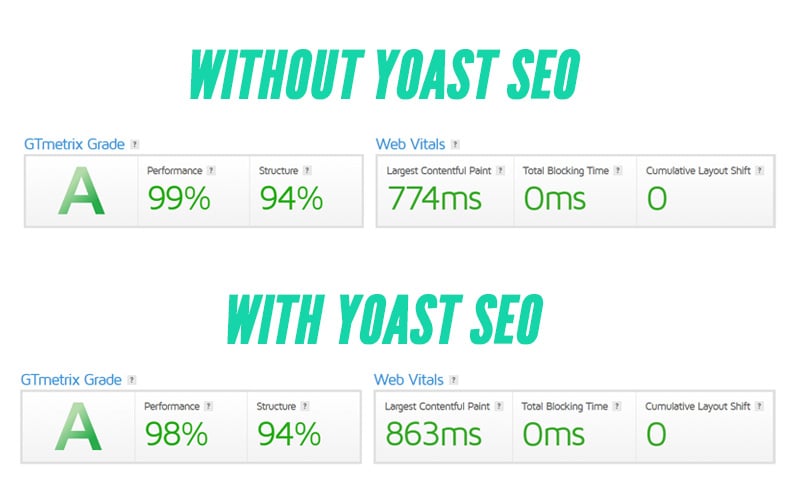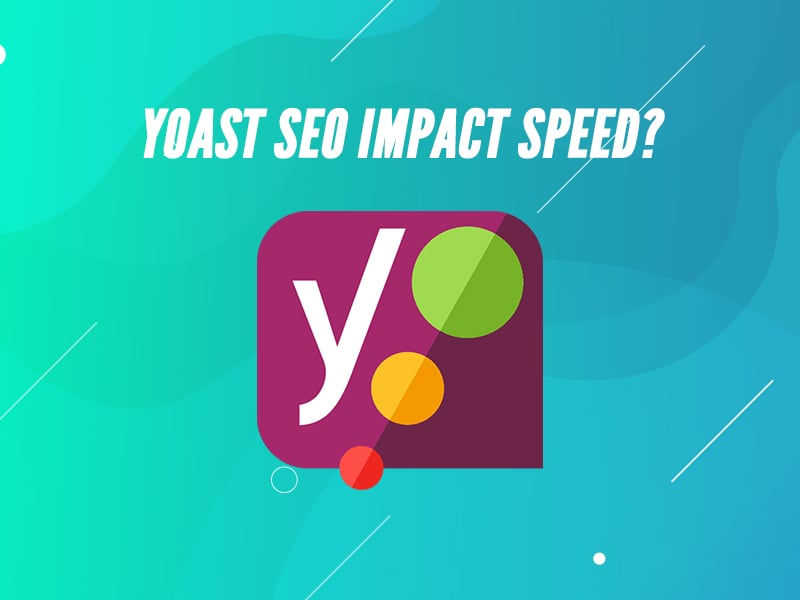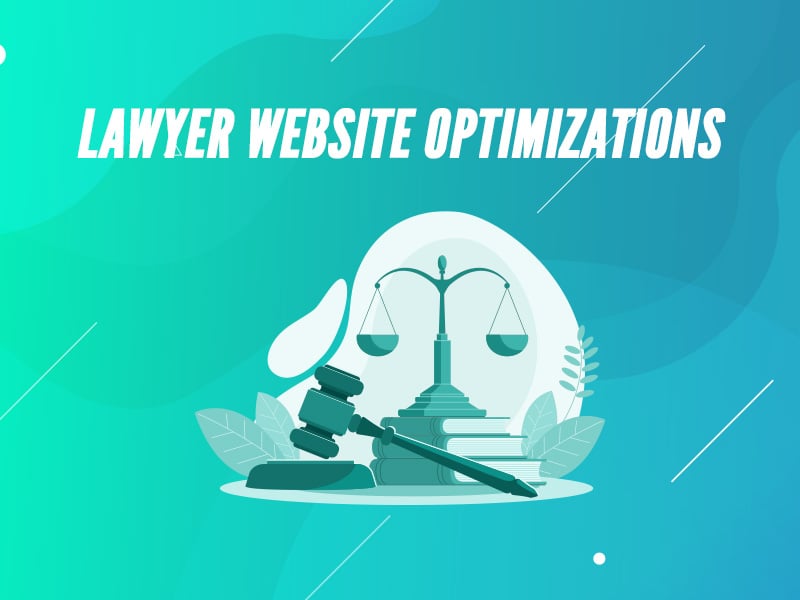These days, it’s not necessarily about what you know, so much as what software or programs you know. Website management, and SEO, are no different. Now you can use various extensions and plugins to optimize your content, including the subject of today’s test: Yoast SEO. Created in 2010, Yoast SEO is a plugin for the popular website management system, WordPress. It’s actually one of the most popular SEO plugins for Wordpress and we use it for most clients. You can use Yoast and other plugins like it to optimize content for search engines, but are these plugins affecting the speed of your website?
When it comes to site speed, you need reliable analytics and tools to ensure those online visitors aren’t sitting in metaphorical waitlines. Not only does it affect the user experience, but it also affects your website’s Google ranking. You want your website to get seen, don’t you? That’s why we took it upon ourselves to test whether or not one of the most popular search engine optimization plugins affects your website’s loading times.
So, we put Yoast SEO to the test.
To conduct our test, The 215 Guys used the Yoast plugin for 5 load tests to see what kind of results we’d get. Here’s where we did it, how we did it, and what the results were!
The Methodology Behind Our Madness
We used a brand new install on our own development server using the 2024 theme and the most recent version of the plugin. To test the results, we used GTmetrix to measure site performance. GTmetrix is one of the most common tools for analyzing website speed, which is why we chose to use it for the test.
The tests were run with Pagespeed and GTmetrix.
Why We Didn’t End Up Using Pagespeed
We chose not to use Google’s Pagespeed because of its unreliability in tests like these. The results varied too wildly and had us questioning the reliability. Like, 1 test would show fairly quick loading and the next would be super slow…but we had changed nothing.
Gtmetrix did not have this issue.
So…What Were The Results of the Tests?!

You’ve been eagerly awaiting the results of our tests and we do not want to disappoint…and the results don’t either! The truth is that there does appear to be an impact on the website, but it’s quite small.
The results of our test found that not only did the performance score decrease by 1% when Yoast was enabled, but the LCP(Largest Contentful Paint) of the pages increased by roughly 100ms. The LCP reflects how quickly a main page loads and the performance score reflects a website’s responsiveness, so that means there was a measurable difference in the speeds throughout the 5 tests.
It’s possible that a number of variables in the tests could have affected the results, though we did take that into account when choosing to use, and not use, GTmetrix. Ultimately, while this is an effect, it’s a very small one that doesn’t necessarily impact the website. The average human being’s reaction time is from 200-300ms, so a 100ms difference is likely to go unnoticed by most of your potential customers.
How To Interpret These Results
Though there is a literal difference in LCP, we could not find a significant increase in loading speed whether or not the Yoast SEO plugin was on or off.
While the results from our tests had some reliability issues due to the different variables, we can safely say that using this particular plugin won’t keep your customers waiting much longer for your products or services.
In Conclusion
The test results are in: SEO plugins like Yoast can have an affect on website performance. It might be minimal, but it is measurable, but here’s why it’s insignificant. Your traffic is likely not going to be affected by such a small change, especially when there are so many benefits to using a plugin to optimize your content.
For all of your developers out there, the issues with a difference in speed that is barely noticeable pales in comparison to the advantages you and your content get from an SEO-related plugin like Yoast. If you run a website with sales in mind, you need to be optimizing your content and utilizing any other tools that might give you the edge in your battle against the competition.
We’re going to continue diving into the details of web page wait times, stay tuned for our next test on what will, and won’t slow down your web pages!



